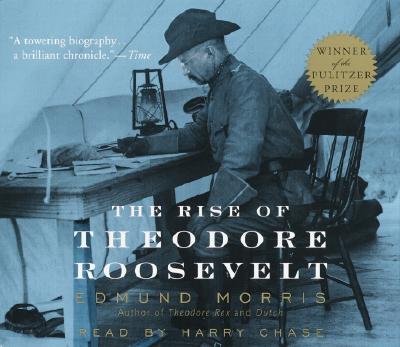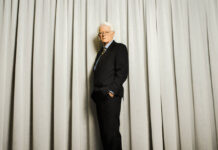Theodore Roosevelt, Jr. was every part the legend that he has become today. In this “towering biography,” Edmund Morris’s Pulitzer Prize winning biography chronicles the life of Theodore Roosevelt, Jr. from his birth to his appointment from Vice-President to President of the United States after President McKinley was assassinated, and everything in between (Time Magazine).
This “meticulously researched and beautifully written” biography brings to life the “most interesting man ever to be President of this country” (L.A. Times). It is a “magnificent…sweeping narrative” that clearly illustrates the seven different men that embodied Theodore Roosevelt—a naturalist, a writer, a husband, a father, a ranchman, a soldier, and a politician—a character that “surges out of these pages with the force of a physical presence” (New York Times, The Atlantic Monthly).
When Theodore was a child his parents were told that he wouldn’t live past the age of thirty years because of the gravity of his asthma. Overcoming his asthmatic attacks, Roosevelt became one of the most athletically powerful kids he knew. He loved hunting, fishing, reading, riding horses, and even climbing mountains while on vacation in Europe; but most of all, as a young boy, he loved nature.
Devouring every book on nature he could find and collecting as many small creatures as he could sneak into the house, Roosevelt had dreams of being a natural scientist and opening up a museum about nature one day. That is, until he attended Harvard and his favorite professor suggested he make a career for himself in politics.
In 1881, at the age of twenty-three, Theodore Roosevelt was elected to the State Assembly of New York, becoming the youngest assemblyman ever. During his tenure as an assemblyman, Roosevelt fought fervently against the political corruption and “machine politics” that had encompassed New York for so long. Also during this time, he wrote The Naval War of 1812, considered the most definitive and accurate account on the subject at its time.
After his first wife died from complications after giving birth to their first child, Roosevelt retired from public office for a while and sought isolation in the Badlands of North Dakota. There, he built a mildly successful cattle ranch and wrote three books about frontier life. He also became a deputy sheriff and hunted down three famous outlaws of the time. But soon after a couple years, Roosevelt felt the urge to return back to the East and enter politics once again.
After marrying his second wife and childhood sweetheart, Edith Carrow, Roosevelt became Civil Service Commissioner under Grover Cleveland’s Presidential administration. He became so effective with his civil service reforms that powerful politicians all over began to fear him. After serving as Civil Service Commissioner, Roosevelt became the police commissioner in New York City where he reformed the police department to an unprecedented low amount of corruption within the ranks. About halfway through his tenure as Police Commissioner though, Roosevelt resigned to become Assistant Secretary of the Navy under President McKinley’s first administration.
When the Spanish-American War broke out, Roosevelt resigned from his post as Assistant Secretary of the Navy and enlisted in the Army where he led a small regiment known as the Rough Riders. After the American victory, Roosevelt came back to New York where he became governor. After serving only two years of his four year tenure, Roosevelt once again resigned his post to become the running mate for President McKinley’s second Presidential campaign.
Edmund Morris’s book is an incredible read and, although quite long, it is an account any American can enjoy. It won not only the Pulitzer Prize in 1979, but also the American Book Award. This critically acclaimed biography has been dubbed the standard for all study of Roosevelt’s life up until the time he became President. “In no other Roosevelt biography do we get a more lively and lifelike picture of the pre-presidential Roosevelt” (Chicago Tribune).
Edmund Morris also wrote Theodore Rex and Colonel Roosevelt which are about Roosevelt’s tenure as President and his time after the Presidency, respectively.
Book Reviews by Phil Young







